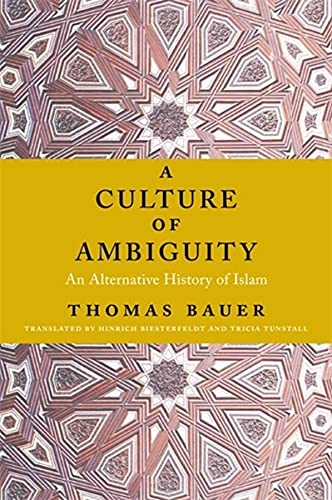
A Culture of Ambiguity: An Alternative History of Islam
Marina Ali
Thomas Bauer. Trans. Hinrich Biesterfeldt and Tricia Tunstall.
Columbia UP, 2021.
“Long before the discovery of ambiguity in modern times, Islam followed the idea that ambiguity is something unavoidable, with the idea that it opens new horizons.”
—From A Culture of Ambiguity
You may also be interested in...

The Great British Bake Off Winner Nadiya Hussain Gathers Global Recipes in Culinary Celebration of Ramadan
Nadiya Hussain's diverse recipes highlight the global unity of Muslim cultures and cuisines.
Children’s Book Documents Rise of Umm Kulthum, Egypt’s Star of the East, As Declaration of National Identity
Illustrator Rhonda Roumani presents an illustrative biography of legendary Egyptian singer and cultural icon Umm Kulthum.
Ancient Egyptians Still Have Things to Teach Us
Socrates and other Greek thinkers admired Egypt for its philosophical tradition. This new translation of a manuscript as old as the pyramids shows us why.